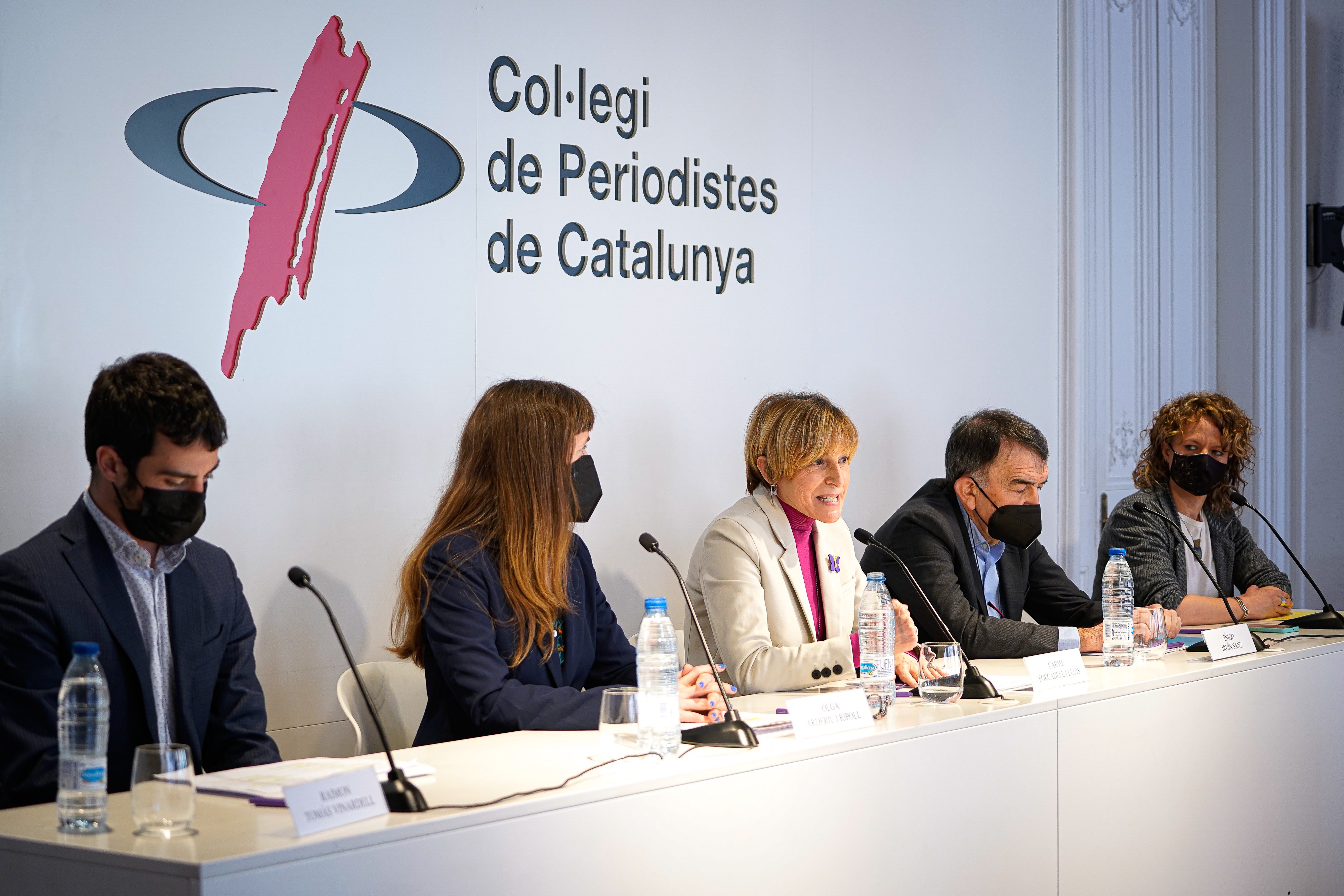An exceptional case, and one for which there is no jurisprudence in Europe. These are the two key characteristics of the appeal that the speaker of the Catalan Parliament in its 11th legislature, Carme Forcadell, has presented to the European Court of Human Rights (ECHR), asserting that the sentence of eleven and a half years' imprisonment imposed on her by the Supreme Court for an offence of sedition violated no less than six fundamental rights. "I am pleased to announce that I am embarking on a journey to Europe in order to obtain the justice that I did not receive in Spain," said Forcadell, who, along with her team of lawyers, announced on March 30th that she would be filing the suit in the Strasbourg court. Her lawyer Iñigo Iruin was clear and forceful: "The Supreme Court and the Constitutional Court have breached the inviolability of the Catalan Parliament and of Forcadell, and there is no law to protect them." The lawyer explained that the ECHR is expected to unify the demands of the nine Catalan political prisoners, as they have all been lodged against the ruling of the same court, headed by judge Manuel Marchena, and to extend the time it takes to reach its final resolution, because after the recent rejection by the Constitutional Court of the appeals from the last four pro-independence leaders, they too will lodge appeals with the ECHR, and they have four months to do so.
Forcadell, accompanied by the lawyer who represented her in the Supreme Court, Olga Arderiu, as well as lawyers Raimon Tomàs and Iruin, set out the six violations that she considers the Spanish courts have committed: against the inviolability of parliament, when punishing her for allowing a debate in the Catalan chamber; bias, in the case of the Constitutional Court; breaching the right to political representation, by decreeing her provisional imprisonment and convicting her; denial of the right to a trial before the court predetermined by law, that is, the High Court of Catalonia (TSJC); breach of her right to assembly and demonstration, as she considers that the events of autumn 2017 in Catalonia were “always peaceful”, and finally a violation of the principle of legality, referring to the definition of the offence of sedition, which three Constitutional Court judges consider does not meet the requirements due to its unpredictability.
"I have said this many times before: I was convicted more as an activist for having previously been president of the Catalan National Assembly (ANC), because my colleagues on the Parliamentary Bureau were only banned from office. Campaigning for Catalonia's independence and self-determination is a democratic and peaceful project and we will never give up," said Forcadell. Earlier, the representative of the ERC party for rights and freedoms, Marta Vilaret, said that the case against Catalan independentism is "a general case" by the Spanish courts, also commenting that "ERC is the party with most people affected by state reprisals, with 50 people in different courts”.
Tailor-made law
Iruin, who is also defending the former Catalan agriculture minister and current MP Meritxell Serret (ERC), has acknowledged, as the dissenting opinions in the Constitutional Court assert, that it is a "complex case" and "also, unique". Specifically, the lawyer explained that a Member of Parliament and a Speaker of a Parliament have "a higher level of protection" in democratic systems in order to ensure the separation of powers between judiciary and legislature, and that when speaking of Forcadell's case, "there is no precedent in Europe, there is no jurisprudence of the ECHR on interference in a parliament", although the Atutxa case, in which the Supreme Court convicted the Bureau of the Basque Parliament for not dissolving the Batasuna political party, has "similarities".
"When the Spanish government has a problem, it creates an ad hoc law, the Basques know this very well," Iruin said, adding that Spanish Organic Law 15/2015, which gives executive powers to the Constitutional Court, was created to stop the Catalan parliamentary debate. "Law 15/2015 breaches the separation of powers and the Spanish government fooled the Venice Commission when it said that it would not apply it to elected officials," he said.
Given the absence of European jurisprudence, Iruin explained that the defence will focus on four general categories contained in ECHR rulings. The first is that Parliament is a principal forum for political debate; the second, that this parliament must be able to function effectively; the third, the foundations of the democracy of separation of powers, and the fourth, the prerogatives of parliaments, of which there are two aspects of inviolability" - that of the parliament ìtself and that of its speaker. "All this is also included in the Statute of Catalonia and the Spanish courts have not respected it," said the lawyer, assuring that in no European country has there been the interference that occurred under Law 15/2015.

